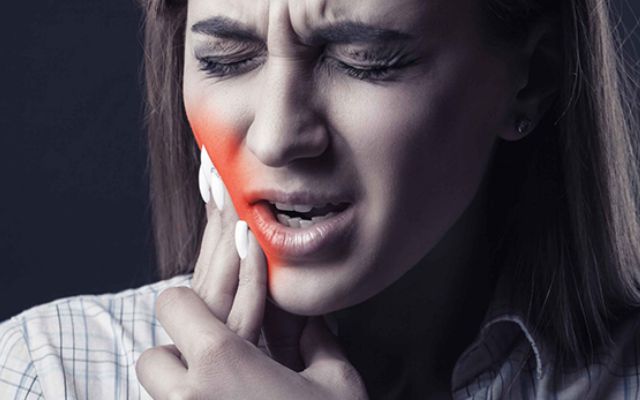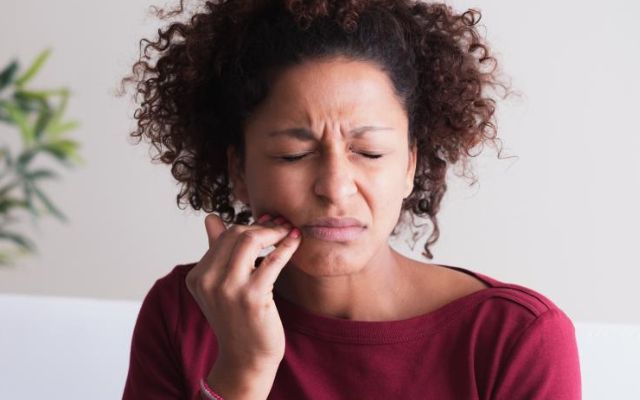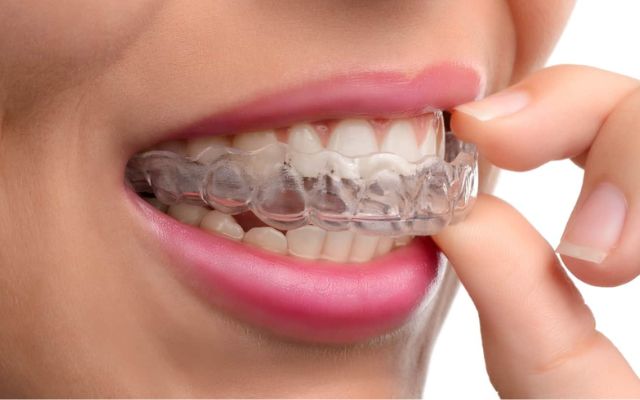Cheek biting is painful and uncomfortable. When agitated or nervous, many individuals bite their cheeks. If ignored, it may cause various dental and health issues.
This page discusses chewing cheek causes, symptoms, remedies, and prevention. Read on!
Explanation Of The Cheek Biting

Biting the cheek is an unusual behavior in which people unintentionally bite the inside of their cheeks or tongue. This may happen when eating, conversing, or sleeping. Also, cheek biting sore may cause swelling, discomfort, and infection.
Why Do I Keep Biting The Inside Of My Mouth?
Biting the cheek is unpleasant and painful, and it may create many problems in daily life. Various circumstances cause this behavior.
In the following part, we’ll discuss its causes and treatment.
- Misaligned teeth: Cheek often biting results from misaligned teeth. When teeth are misaligned, people may bite their cheeks or tongue accidentally.
- Overlapping teeth: Too-tight teeth cause pain and irritation.
- Wisdom teeth: Developing wisdom teeth may cause oral pain and inadvertently bite the face or tongue.
- Insomnia, anxiety, and stress: These disorders may cause oral and bodily stress.
- Bad Habits: Some individuals chew on items, nails, or lips, which may lead to this behavior.
Effects Of Chewing The Cheek
There are several negative outcomes that might result from accepting a hurting cheek.
- Pain: Chewing and talking hurts when we bite our cheeks.
- Swelling and Inflammation: The inside of the cheek or tongue may swell and become inflamed from it wounds.
- Infection: Untreated wounds may get infected and worsen.
- Loss of confidence: It may produce poor self-esteem, particularly while talking to others.
- Oral Disorders: Long-term biting cheek may create dental problems such as misaligned teeth, crooked teeth, worn teeth, and ligament discomfort.
Furthermore, if you often bite your cheeks, see a dentist or psychologist to determine the cause and find effective treatment and preventative methods.
Cheek Biting And Psychology
Cheek or tongue biting may cause dental and maxillofacial health issues and mental health issues.
While conversing or laughing, cheek-biters may feel self-conscious. They may feel uncomfortable and lose confidence, causing anxiety, melancholy, or stress.
Moreover, it may cause pain, discomfort, and sleep disturbances. These issues might cause weariness and poor focus, disrupting work and everyday life.
Hence, chewing cheek treatment and prevention enhances psychological well-being and quality of life as well as dental and maxillofacial health.

How to Stop Biting the Cheek?
Pecking the cheek is unpleasant and uncomfortable for the sufferer. Long-term health will harm dental health. To protect your health and comfort, stop biting your cheeks immediately.
In this segment, Perth dentists will discover how to quit biting cheeks:
Use Relaxation Methods

One way to stop biting your cheek is to relax. When calm, the patient may concentrate on other tasks instead of biting or nibbling the cheek. These strategies relax:
- Practice yoga: Studies show that yoga reduces stress and improves mood. This may impair cheek gnawing.
- Breathing exercises: Deep breathing reduces anxiety and tension. Study shows that deep breathing reduces psychiatric illness symptoms. Cheek gnawing may decrease stress and anxiety reduction.
- Meditate: A University of California research found that meditation reduces tension and anxiety among cheek biters.
- Massage: Stress and discomfort are reduced with massage. Studies show that massage reduces stress and improves happiness. Cheek gnawing may be reduced through stress alleviation and comfort.
Based on the preceding findings, calmness reduces chewing cheek. Unfortunately, no treatment is flawless and requires trial and error to identify the best one for each patient.
Dietary Changes

To reduce cheek biting, dietary changes may assist. Dietary changes may lower the risk of biting the cheeks or harming oral tissues.
In detail, The University of Sao Paulo in Brazil discovered that eating nutrient-rich foods like vegetables and nuts frequently decreases stress and anxiety, cutting depression risk.
So, nutritional modifications include:
- Limit alcohol and caffeine: These beverages might irritate and stress patients, making them chew their cheeks. Alternatively, patients may drink water or sweetened tea.
- Eat slowly and chew food thoroughly: Slowly eating and digesting food reduces tension and the incidence of cheek biting.
- Limit sugar and sugary foods: Too much sugar might damage oral tissues and cause cheek gnawing.
- Improve nourishment and hydration: Adequate diet and water prevent stress, cheek biting, and other health issues.
In short, dietary adjustment is a simple yet efficient way to lessen cheek gnawing risk and habit. But, in order to have the optimum outcomes, it must be done on a regular and ongoing basis.
Dental Care
Dental abnormalities may be treated to reduce and prevent biting the cheek. Treating dental issues such as wisdom teeth, gingivitis, mouth sores, and others might reduce the likelihood of it.
- For instance, addressing gingivitis with a good brushing, mouthwash, dental care, and dentist visits helps reduce chewing of the cheek.
- Also, treating oral issues like poor breath or missing teeth may reduce biting the cheek.
Unfortunately, correcting oral issues does not necessarily eliminate chewing the cheek. For optimum results, utilize it alongside other habit-changing strategies.
Use Mouth Guard

Teeth and jaws may be protected against damage or grinding the cheek with an encrustation or mouth guard. Also, dental spacers and other tooth guards can be used to protect teeth. These mouthguards are available at sporting goods stores.
As a result, a mouth guard may lessen both the discomfort and the danger of injury from biting the cheek. The best results are seen when a mouthguard is used in conjunction with other habit-changing techniques.
Bite Inside Cheek Treatment
Biting one’s cheek may cause gum, cheek, and mouth sores. These injuries may cause discomfort, edema, inflammation, infection, and decreased quality of life. Immediate treatment reduces pain and speeds healing. These are several chewing-the-cheek pain treatments:
Local Anesthetic
Topical anesthetics generally include lidocaine or benzocaine to numb. These drugs alleviate pain and suffering in the numbed region.
Nevertheless, if used excessively, local anesthetics may induce skin irritation, allergies, and bleeding. Hence, local anesthetics should be used under a dentist’s supervision.
Moreover, it’s crucial to clean the area and administer antibiotics after using a local anesthetic. If the wound does not heal, see a doctor.
Use Painkillers
They include acetaminophen, ibuprofen, and naproxen. But, ask your doctor or therapist before taking pain medicines since they might have negative effects. If the wound is serious or painful, you require medical attention.
Physiological Saline
Physiological saline is one of the oldest ways to clean wounds and treat biting cheek pain. To make physiological saline, combine salt and warm water. Wash your mouth and wound with physiological saline. After that, rinsing the mouth and wound area with physiological saline cleans and reduces infection.
Moreover, physiological saline soothes wounds, reduces discomfort, and aids healing.
Yet, a doctor should examine and treat a major wound.
Antibiotic Use
Antibiotics for gnawing cheek wounds should be recommended by a doctor. Antibiotics are often used to treat wound infection and inflammation. The wound may enlarge, hurt, and inflame if not properly managed.
Nevertheless, overusing antibiotics may produce negative effects and impair their efficacy.
Hence, you must follow your doctor’s directions and take antibiotics at the proper dosage and duration.
Conclusion

Here’s everything you need to know about chewing the cheek, a severe dental health issue that many individuals ignore. So, you should get preventative dental care at trustworthy clinics to avoid this.
We recommend Spring Orchid Dentistry in Bassendean for exceptional dental care. A famous and professional dental facility with expert physicians and cutting-edge technology. Spring Orchid Dentistry also offers a Children’s Dental Benefits Program (CDBS) to assist kids to develop healthy teeth.
FAQs
Mouth Biting And Lisp: Related?
The American Dental Association reports no research linking biting the cheek to impaired speech. Nonetheless, oral issues like tongue biting may cause youngsters to lisp. Consequently, if you often bite your cheeks and think you have a lisp, consult a dentist.
Is Cheek Biting Neurological?
No, it isn’t. Biting the cheek is a bad habit or the result of psychological causes like worry, tension, or psychological stress, not a neurological illness. In rare situations, biting the cheek might harm nerves. See your doctor if you have any odd symptoms connected to the cheek or lip biting or other symptoms.
Is Biting Your Own Cheek While Sleeping Sick?
Sleeping and biting your cheek may indicate a psychiatric or sleep condition. Also, sleeping while chewing the cheek may harm teeth and mouth lining.
In short, if you have this tendency, visit a doctor to determine the reason and therapy.





